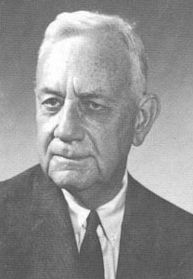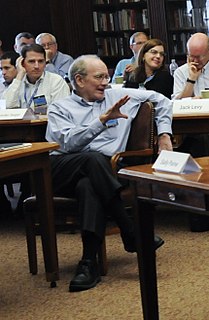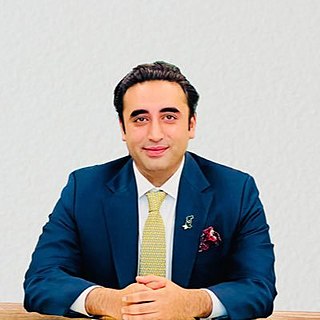A Quote by Dumas Malone
American history offers no parallel to the friendship between John Adams and Thomas Jefferson, spanning the first half century of the Republic. . . . The publication, in full and integrated form, of the remarkable correspondence between these two eminent men is a notable event.
Related Quotes
[John] Adams's perception of Europe, and especially France, was clearly different than [Tomas] Jefferson's. For Jefferson, the luxury and sophistication of Europe only made American simplicity and virtue appear dearer. For Adams, by contrast, Europe represented what America was fast becoming - a society consumed by luxury and vice and fundamentally riven by a struggle between rich and poor, gentlemen and commoners.
When John Adams - when - James Madison was writing - pretty much writing the Constitution, he got a letter from Thomas Jefferson, who was then-ambassador to France. And Jefferson said - I am paraphrasing - `Do not forget to keep habeas corpus and strengthen it.' That - in - that's the oldest English-speaking right. It goes back to the Magna Carta in 1215.
According to Adams, Jefferson proposed that he, Adams, do the writing [pf the Declaration of Independence], but that he declined, telling Jefferson he must do it. Why?" Jefferson asked, as Adams would recount. Reasons enough," Adams said. What can be your reasons?" Reason first: you are a Virginian and a Virginian ought to appear at the head of this business. Reason second: I am obnoxious, suspected and unpopular. You are very much otherwise. Reason third: You can write ten times better than I can.
George Kennan and Paul Nitze were the Adams and Jefferson of the Cold War. They were there for the beginning, they witnessed its course over almost half a century, and they argued with each other constantly while it was going on. But they maintained throughout a remarkable friendship, demonstrating-as few others in our time have-that it is possible to differ with civility. Nicholas Thompson's is a fine account of that relationship, carefully researched, beautifully written, and evocatively suggestive of how much we have lost because such civility has become so rare.
John Adams and Thomas Jefferson corresponded for 13 years before they died on the same day. They asked, "How can one have prosperity without commerce? How can one have commerce without luxury? How can one have luxury without corruption? How can you have corruption without the end of the Republic?" And they really didn't know the answer.
When I speak to students, I tell them why we have a First Amendment. I tell them about the Committees of Correspondence. I tell them how in a secret meeting of the Raleigh Tavern in Virginia, Thomas Jefferson and Patrick Henry, who did not agree with each other, started a Committee of Correspondence.
[John Adams and Tomas Jefferson] shared experience in 1775 - 1776 in bringing about the separation from Britain and their service in Europe cemented a friendship that in the end withstood the most serious political and religious differences that one could imagine, especially their differences over the French Revolution. It was probably Jefferson's obsession with politeness and civility that kept the relationship from becoming irreparably broken.
The presidency made John Adams an old man long before there was television. As early as the nation's first contested presidential election, with Adams and Jefferson running to succeed Washington, you had a brutal, ugly, vicious campaign that was divisive and as partisan as anything we're experiencing today.


































